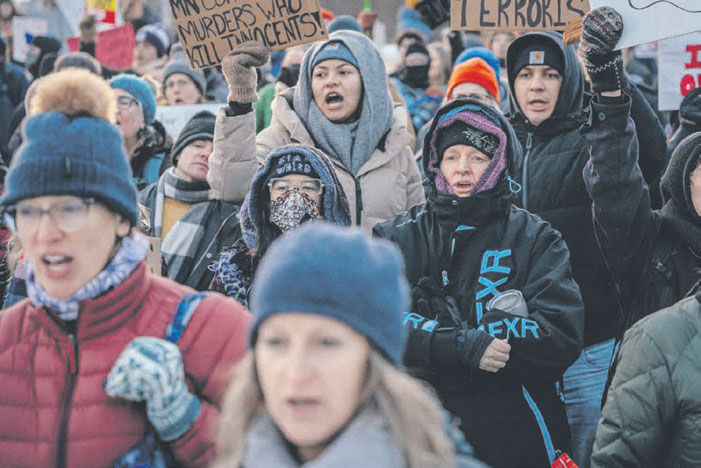‘Run, Kamala, run’: Mention of Harris’ father was a rare homage to a fleeting figure
- The San Juan Daily Star

- Aug 26, 2024
- 4 min read

By Erica L. Green
“Run, Kamala, run.”
When Donald J. Harris uttered those words to his young daughter more than 50 years ago, he was encouraging her to whip freely through the parks of Oakland, California, not seek the highest elected office in the country. But in her address accepting the nomination as the Democratic presidential nominee, Vice President Kamala Harris said it was these words that helped inspire her.
“From my earliest years, he taught me to be fearless,” Harris said.
It was a rare homage to her father, a prominent economist but fleeting figure in her life who has largely been a footnote in her personal and political story. The first Black scholar to receive tenure in Stanford University’s economics department, Donald Harris remains a professor emeritus there, and turned 86 the day after his daughter gave the most important speech of her life at the Democratic National Convention. He was not among the family members who accompanied Harris to the convention.
Her relationship with her father is a closely guarded part of Kamala Harris’ life about which she has spoken only sparingly. Her 2019 memoir, “The Truths We Hold,” referenced him only a handful of times. But in presenting herself as a nominee who understands the American dream through the complex lenses of personal, familial and social struggles, Harris tapped into the totality of the experiences that forged her.
That included when her parents divorced — or, as she would write in her memoir, “they stopped being kind to each other”— when she was in elementary school.
“My father remained a part of our lives,” Harris wrote. “We would see him on weekends and spend summers with him in Palo Alto. But it was my mother who took charge of our upbringing. She was the one most responsible for shaping us into the women we would become.”
Over the years, Harris has given reserved answers when asked about her father. In a 2003 interview with SF Weekly, she said: “My father is a good guy, but we are not close.”
In recounting in 2021 how he instilled pride for their Jamaican heritage, Harris wrote in an email to the Washington Post that they were on “good terms,” which remains true today, according to people close to Harris.
Harris has been clear, however, that she is her mother’s daughter.
“There is no title or honor on earth I’ll treasure more than to say I am Shyamala Gopalan Harris’ daughter,” Harris wrote in her book. “That is the truth I hold dearest of all.”
She regularly praises the strength and courage displayed by her mother, while raising her and her sister, Maya Harris, alone. And she often credits her for instilling her fighting spirit — often through tidbits of wisdom that Harris regularly uses in public speeches and conversations.
On Thursday, Harris invoked her mother to drive home how she was no stranger to “unlikely journeys” — born to a woman who traveled to California from India alone at the age of 19, with an “unshakable dream to be the scientist who would cure breast cancer.”
Her mother died in 2009 of colon cancer at the age of 70.
In her address Thursday night, Harris described in detail her mother’s influence.
“And I miss her every day, and especially right now,” Harris said in her convention speech. “And I know she’s looking down smiling. I know that.”
Harris’ father has largely declined to weigh in on his daughter’s barrier-breaking political ascent in recent years, except in 2019 when he criticized a comment she made connecting her Jamaican roots to marijuana use. Since then, he has cited his aversion to seeking publicity. He did not respond to a request for comment Saturday.
In an essay published in a Jamaican publication in 2018, Donald Harris described how interactions with his children came to an “abrupt halt” in 1972, after a custody battle that he blamed on “the false assumption by the state of California that fathers cannot handle parenting,” especially Black ones like him from the islands.
“Nevertheless, I persisted, never giving up on my love for my children or reneging on my responsibilities as their father,” he wrote in the essay.
Donald Harris also reflected fondly on taking his girls on frequent trips to Jamaica, and imparting wisdom from what he learned there, particularly that it was “important not to lose sight of those who get left behind by social neglect or abuse and lack of access to resources or ‘privilege.’”
In his essay, he also vividly recalled taking his two daughters in 1970 to a mountain he once climbed called Orange Hill, and watching his daughter do what he had always urged her to do.
“Kamala, ever the adventurous and assertive one,” her father wrote, “suddenly broke from the pack, leaving behind Maya, the more cautious one, and took off like a gazelle in Serengeti, leaping over rocks and shrubs and fallen branches, in utter joy and unleashed curiosity, to explore that same enticing terrain.”






Comments